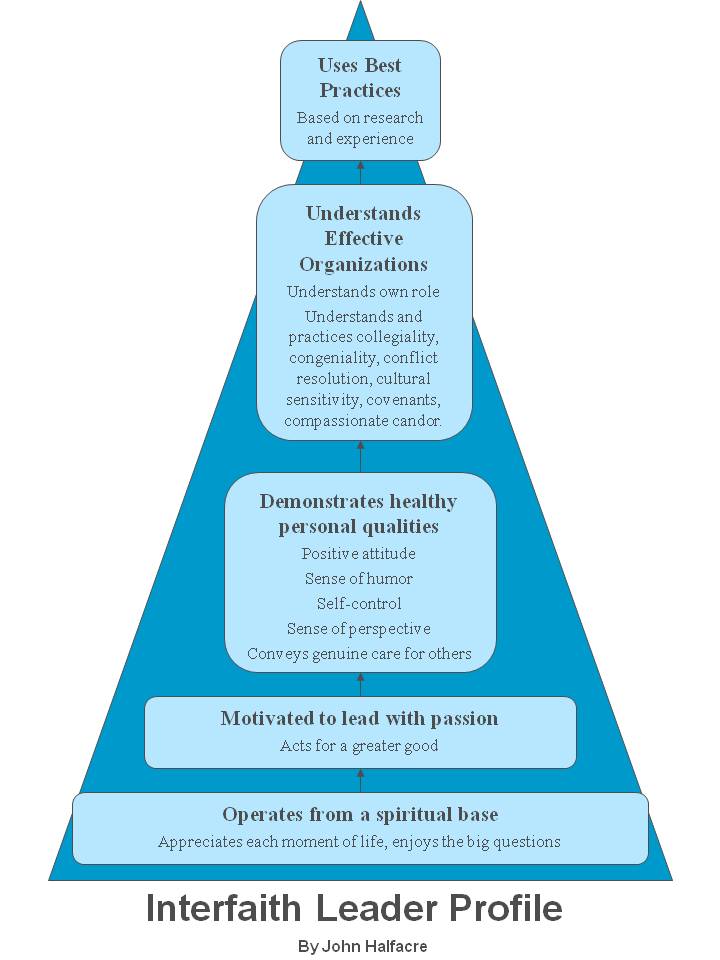Organizing and leading an interfaith activity in your community may be the most significant step that you ever take to further peace in your time. Many of us never expected to find ourselves involved with the interfaith movement. There is no job description for an interfaith leader, although we have observed some important characteristics.
Interfaith leaders sincerely appreciate and enjoy the great diversity found among our religious communities. Their personal spiritual beliefs and practice are in no way threatened by different ideas and opinions; indeed, a true leader will be challenged, stimulated and will grow as a result of interfaith encounters. Others feel genuinely affirmed and respected by a true leader. An interfaith leader practices active listening in order to gather information and opinions from as many individuals and parts of the community as possible, refraining from imposing her or his opinion on the rest of the group, and assisting the group to arrive at shared decisions.
Success for your local group will require a constellation of skills: the leadership qualities described above, plus some organizing abilities, a habit of careful follow-through on tasks, and the personal energy required for meetings and other gatherings. Someone in your group needs to provide the technical expertise required for communications, including computer and online skills. If funds will be needed for your activities, consider asking for assistance and advice from someone in your community who understands basic bookkeeping and principles of accountability and transparency. Individual members of Interfaith Partners of South Carolina may be available to share their area of expertise with your group.
Interfaith Partners of South Carolina member John Halfacre has created a valuable profile of the interfaith leader, illustrated in the accompanying “pyramid” of qualities, starting at the bottom with the importance of operating from a spiritual base.




